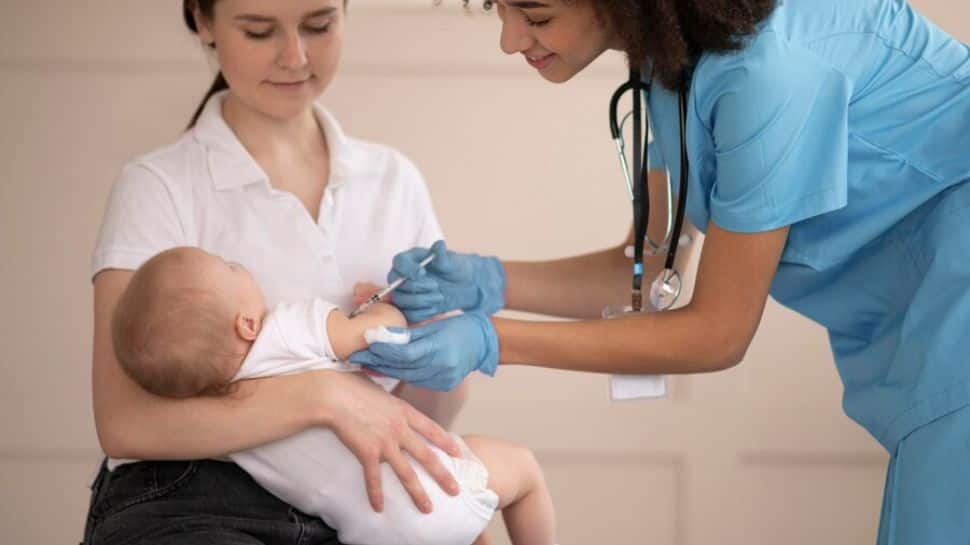[ad_1]
When you are a parent, the most important thing for you is the well-being of your child – their social, emotional, mental and above all physical well-being. So when your baby or toddler may scream and cry after getting a vaccine, you also know that vaccines are essential to keeping your baby healthy and safe. By working with your body’s natural defenses to create protection, vaccines protect against a variety of diseases, helping people live longer and stay healthier.
Why is it important to vaccinate your child?
Dr. Mubashir Khan, Consultant – Neonatology, Manipal Hospital, Banner, Pune, shares, “Immunization is essential to protect babies, especially in their early years, from potentially fatal diseases. will help. Growth. While it can be difficult to watch a child get vaccine shots, being up-to-date on a child’s first year of vaccinations is an important thing parents can do for their health.”
Some diseases that were previously thought to be curable are now either completely eradicated or easily managed due to vaccination, shares the doctor. “However, many new diseases have also been discovered recently. This highlights the need to vaccinate children more,” said Dr Khan.
List of vaccines given to children
Dr. Mubashir Khan shares a list of vaccines by age group in the early years:
Immunization given to newborns at birth
They are given BCG, oral polio and hepatitis B-1 vaccinations before going home. The main disease that the BCG vaccine protects against is tuberculosis.
Vaccines for the first six months
The first vaccine in the six-week immunization schedule is DTwp1, which protects against whooping cough, diphtheria and tetanus.
For the second polio vaccine, IPV1 is given by injection instead of oral drops.
HIB-1 vaccine protects against illness caused by Haemophilus influenzae bacteria and reduces the risk of meningitis and pneumonia.
Rotavirus 1 vaccine is needed to reduce the incidence of severe diarrhea, which can be fatal in young children.
PCV 1 protects the body against various pneumococcal bacterial strains, preventing illnesses such as septicemia and chest infections.
Second round of vaccination: A second dose of hepatitis B vaccine is given; Booster shots are often needed before the baby turns one year old. The second round of vaccinations, which includes DTwP2, IPV 2, Rotavirus 2, Hib 2, and PCV 2, as noted on the vaccination card, begins at ten weeks.
A third round of vaccination, including DTwP3, IPV 3, Rotavirus 3, Hib 3 and PCV 3, is given to infants at 14 weeks of age.
Vaccine after 6 months
Six months later, oral polio vaccination is usually given with the last dose of hepatitis B vaccine. An important milestone at nine months is getting the MMR vaccine, which doctors recommend before the end of 270 days to prevent measles, mumps and rubella.
Second round of oral polio vaccination: When the child is 12 months old, the hepatitis A1 vaccine is given with the child’s first birthday, thus completing the first year of vaccination.
“A child has a twelve-year immunization schedule, which emphasizes how important it is for parents to keep the immunization card provided by their doctor safe. This card serves as a record of the various immunizations the child has received and provides important information in case it is needed later,” said Dr. Khan. shared
Follow the doctor’s advice, vaccinate your child
Dr. Khan says it’s important to consult the child’s pediatrician to ensure they receive all the vaccinations on schedule. “Using this checklist can protect children from diseases that can be dangerous and improve their general health and well-being during these important early years. Remember that immunizations not only protect children from harm but also help prevent the spread of infectious diseases between them.” Neighbors. Maintaining current immunization records is essential to build a healthy future for both children and society,” added Dr Khan.
[ad_2]

